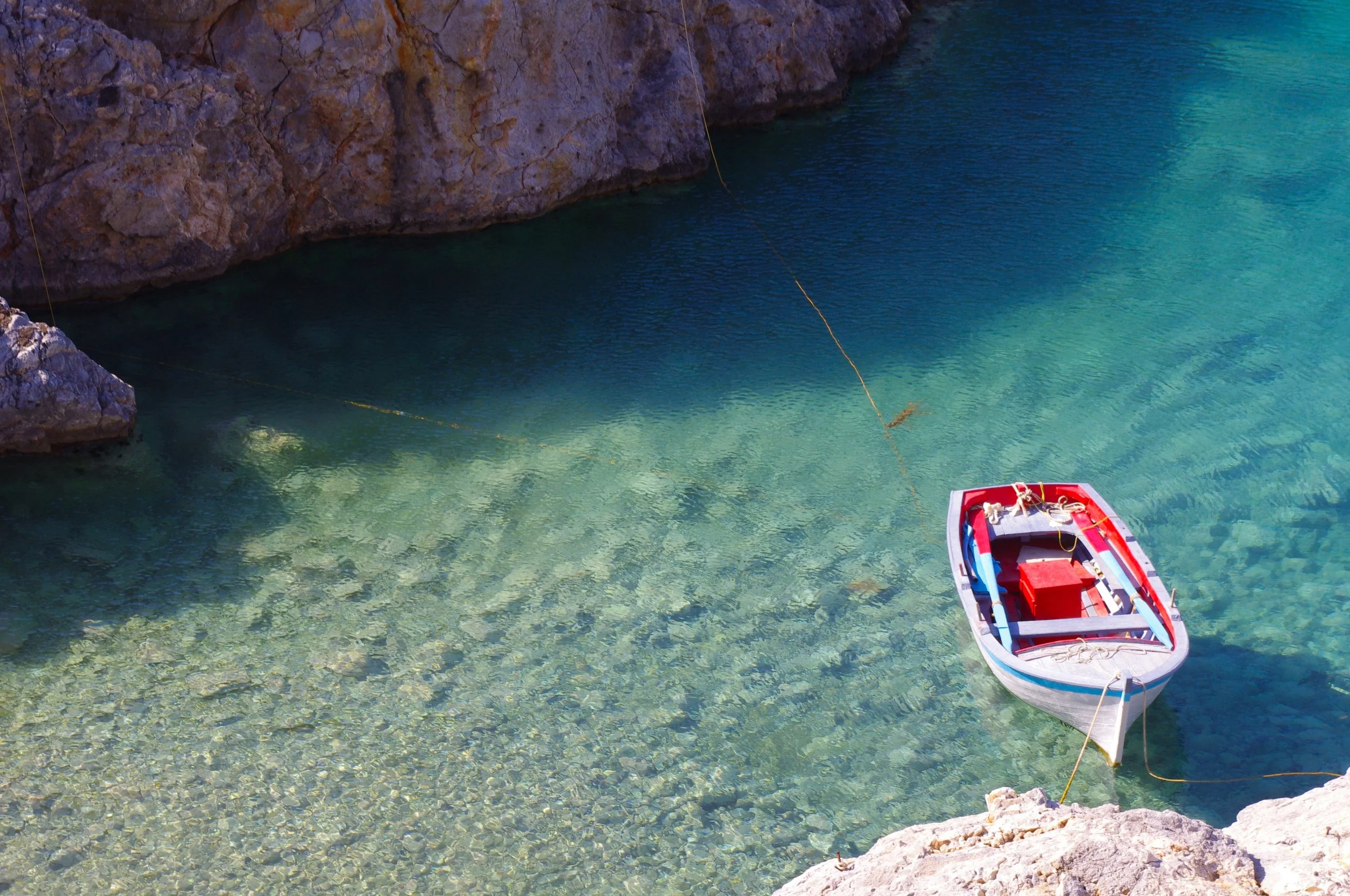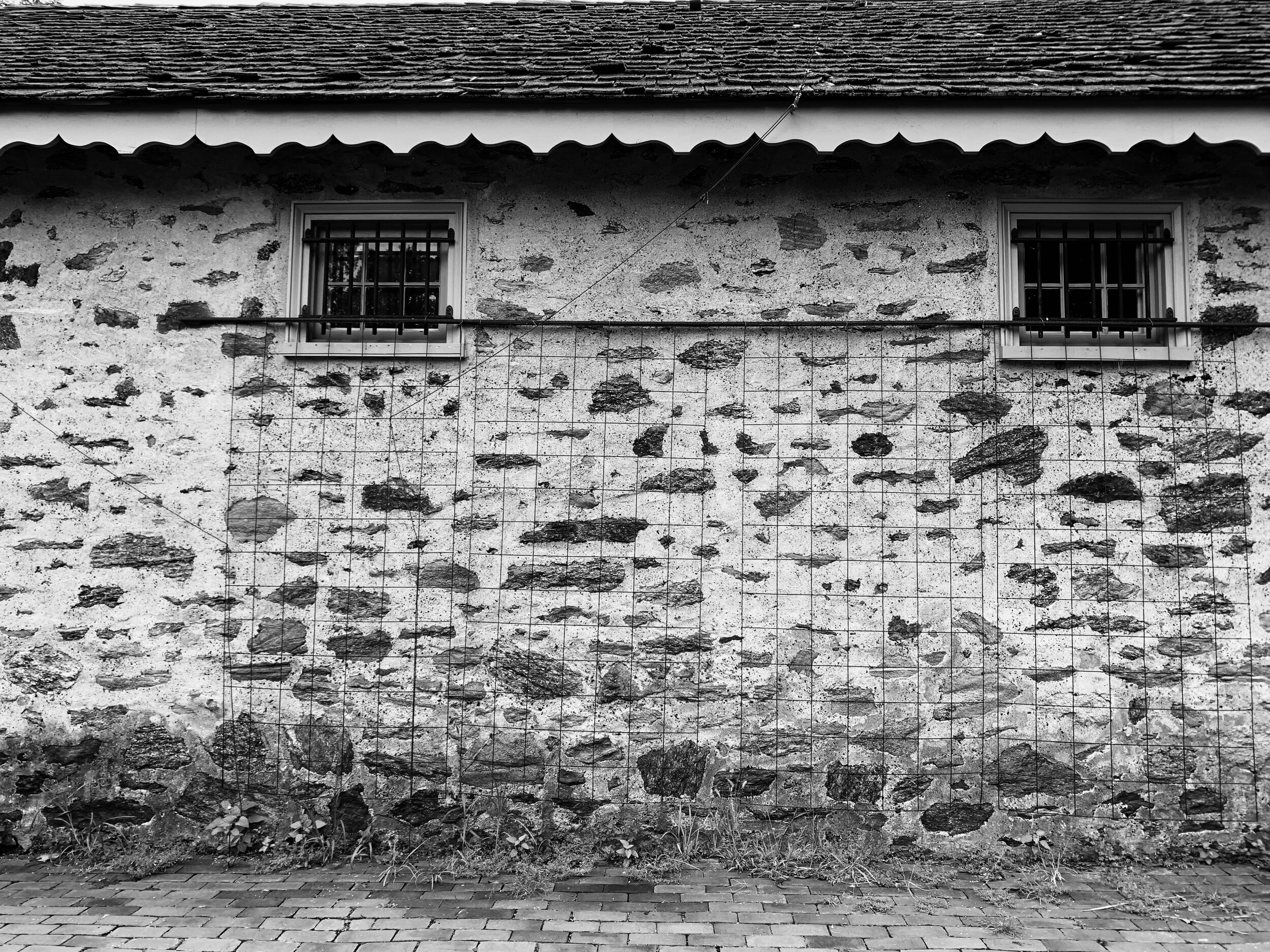Karolina Manko: 'We function in systems not fundamentally built to welcome us'

Fivos Avgerinos
Gołąbki
“Is it still his life he moves through, or does
That end at the end of what he can name?”
- “Life on Mars” by Tracy K. Smith
On a Sunday afternoon I watch my mother’s
arthritic hands mold a dozen gołąbki.
The house smells of boiled cabbage
and cooked rice. I swallow mouthfuls
of anticipation while she hums to herself
and asks me to pour more pepper.
The ritual is a language all the women
in my family know. One spoken through
dirty palms and sweaty brows, silent
nods of gratitude and the occasional smile.
I study closely, memorizing movements,
prompting my muscles to practice.
My mother is a house of stories
which she insists are secrets. A body
that survived both war and love. She is
a miracle that does not believe in itself.
“Can you talk to my daughter? Sorry,
my English is no good.” A white flag.
I am a network of phone wires,
a cross-continental tangle of messages.
A body struggling to exist under the weight
of two identities. I am a Cartesian conflict
always searching for the proper suture,
an apology for my unsightly seams.
My mother pours white rice into a bowl
filled with meat. Her fingers need no recipe
to guide her. She stuffs leaf after leaf, each
a perfectly wrapped animal. Each a tiny
monument honoring generations of work.
We sit for a moment waiting for the sauce to boil.
Perhaps in the old country this kitchen
would be a balloon filling with laughter,
the oldest meeting-hall of sisterhood.
But in America my mother works quietly,
goes unnoticed, isn’t sure whose life
she is moving through this time around.
Passing Through Worlds
I am passing through Greenpoint, Brooklyn.
The meats, smoked and oily, hang in windows.
It is Winter and the wind blows through
the t-shirts of the homeless drunks.
They ask me for money but I do not donate,
out of tradition.
My mother survived
the Communists. My mother,
the communist, survived
after she lost her job, and moved
us to America
where the meats hang unapologetically
before the homeless drunks,
and I am privileged with an apathy
that doesn’t fathom the hunger
of my grandmother’s childhood.
When the soldiers came through Zambrow, Poland,
their footsteps settled like snow: wiped out everything.
It was Winter. Smoked meats tied
beneath my grandmother’s jacket.
Simple gifts for the neighboring ghetto,
donated, not out of compassion, but tradition.
My grandmother survived
the soldiers. My grandmother,
the soldier, survived
the War that rewrote an entire history
in Poland;
so that sixty years later
I could find myself,
for a single moment,
suspended between one world
and another. Foreign to both.
A body of politics and war
merely passing through.
The Dompteuse Leads By Example
*Dompteuse- (n.) A woman who trains animals.
Each line of this poem is the definition of an uncommon word in the English language.
1.
A woman who trains animals / is
one who fakes a smile, as on television/ is
someone who walks without shoes. / familiar with
a horse’s attempt to remove its rider.
An idle spectator
suspended by a single thread, / she is
a person who never laughs, / knows intimately
the collective hisses of a disapproving audience. / Suffers from
the condition of one who is only amorous when the lights are out.
2.
The sensation that someone is mentally undressing you / is akin to
belching with the taste of undigested meat.
3.
Big-bellied, gluttonous / men dislike
masculine qualities in a woman. / Prefer
a diet of bread and water. / Prefer
flirtatious talk that leads nowhere. / Prefer
key-hole shaped. / Prefer
the act of mentally undressing someone. / Prefer
being full of beer. / Predestine
an unhappy fate.
4.
The worship of one’s self / begins with
the act of removing obstructions from or cleaning bodily passages. / Greeting
her own / dark or rusty color / with
loud or hysterical laughter. / Concludes with
the act of weeding / out the unnecessary in order
to burst open, as the pod of a plant.
5.
A woman who trains animals / is
the low rumbling of distant thunder / is
someone who walks without shoes / freely
producing clouds of tobacco smoke/ is
one who cuts her own hair / is one who has
the pleasure of being able to say ‘to hell with it.’
The Cotton Field
On the long black tongue of the highway
make a right about a quarter of a mile
after your tires cross the end of the bridge.
Follow the red clay road glazed in pink asphalt
until you reach the shanty Baptist Church.
You will know it by the outhouse.
Make a left towards the train tracks,
in the direction of the sky’s gaping mouth.
There- on the other side- is a cotton field.
There, they sleep. Little bodies untouched
by their own awful history. Afraid of nothing
except a fickle Spring. Removed by time.
There lies a silent memorial. Unaware
of itself. Uninterested in entertaining people
whose hands have no experience in picking
apart the Holy from the Useless. What a body!
What a sight! It asks only to be left alone
with the sunshine and the rainstorms.
It asks only to be left to grow freely
in the direction of the sweetest soil.
The cotton field. A lesson in change.
It whispers, but only
to its own emptiness.
Filled with ghosts, but unburdened.
Winter Death
To die during the Winter is redundant. Everyone knows
that silence can not be drowned out. She whistles
from the center of the brain, laughs like wind chimes
on the darkest night of the year. To die among the snow
and the shameless trees, is no death at all. Mere withering,
like a flame falling asleep inside of a closed up jar.
Father, you had the right idea. Waited until the last
of the summer months before you open-mouth fish-gasped.
Everything about you was melodramatic and short-lived.
You were not like the Winter- an unforgiving condemnation;
a part of the spinning Earth. Unwelcome.
Q & A with Karolina Manko and editor Joanna C. Valente
JV: Do you think the writing community in North America has become kinder to women writers? Have you ever experienced unwelcome?
KM: In many ways, yes I think being a woman-writer is a little easier now. There are a lot more spaces for exclusively women and that’s important. There are also a lot more women editors, which is a huge help! Of course, it’s not ideal and there is still much ground to cover in order to claim equality. I think every woman, at some point in her life, has felt unwelcome. By nature, we function in systems that are not fundamentally built to welcome us. Much of my journey, both as a writer and as a person, deals with feelings of Otherness, as a woman, as an immigrant, as a writer, etc.
At what age did you begin writing? What drew you to poetry?
I wrote my first attempt at a poem in 4th grade after reading a Shel Silverstein book during indoor recess one day. Writing has always been the most accessible art form for me. I’ve always lived in a small apartment and never had much money for things like expensive cameras or dance lessons. Writing has always been something I could do without asking anyone else for permission. Poetry, specifically, feels exceptionally empowering in that it is an art form that is fundamentally about rebellion. It’s the hardest art to capitalize on. It’s also hard to fake. In many ways, it’s the most honest art form. I’ve always felt free in poetry.
Who are some of your favorite writers right now?
I’ll always have my go-to favorites: Junot Diaz, Leslie Marmon-Silko, Jhumpa Lahiri, etc. Lately I’ve been reading works by people who have experienced life in the margin. People like Eduardo C. Corral and Natalie Diaz. I’m currently reading Jason Shinder’s poetry collection, "Stupid Hope" as well as Michael Chabon's "The Amazing Adventures of Kavalier and Clay.“
What makes you uncomfortable?
Feeling comfortable. I try my hardest to keep my life interesting and to keep myself from feeling too coddled. I think there is a lot of knowledge to be found in being outside of one’s comfort zone. Being uncomfortable makes me focus and engage. It keeps me aware and questioning.
As someone who has lived in New York for most of your life, with a brief stint in Alabama, where do you think poetry is thriving? With the internet as a game changer, does location even truly matter anymore?
I’m not sure if we have a modern-day version of "Vienna” or “Paris” or “New York.” I’m not sure if there is a need for such dedication to geography. I think the internet is definitely the New Age art capital. This is great, because it enables anyone to participate. This can also make finding that specific aesthetic niche even harder. Regardless, I think it’s still important for artists to participate in a physical way: to go to galleries and poetry readings and the opera. I think it’s important to retain a physical space as well as a virtual one.
Editor's Note: This feature appeared on our old site.
Karolina Manko is a Polish-born immigrant who grew up in New York. In 2012 she received the Esther Unger Poetry Prize as well as the David Markowitz Poetry Award. Karolina's work has appeared in various journals, anthologies, and literary magazines in both the U.S. and abroad, including: Magma Poetry, DecomP Magazine, The Rumpus, and Vol. 1 Brooklyn, among others. Karolina has shared stages with notable figures and honored academics such as Barry Wallenstein, Cornelius Eady, Tracy K. Smith, and former U.S. Poet Laureate, Philip Levine. In 2016 she was a general contributor at the Bread Loaf Writers’ Conference. You can follow her on Twitter & Instagram: @k_manks







